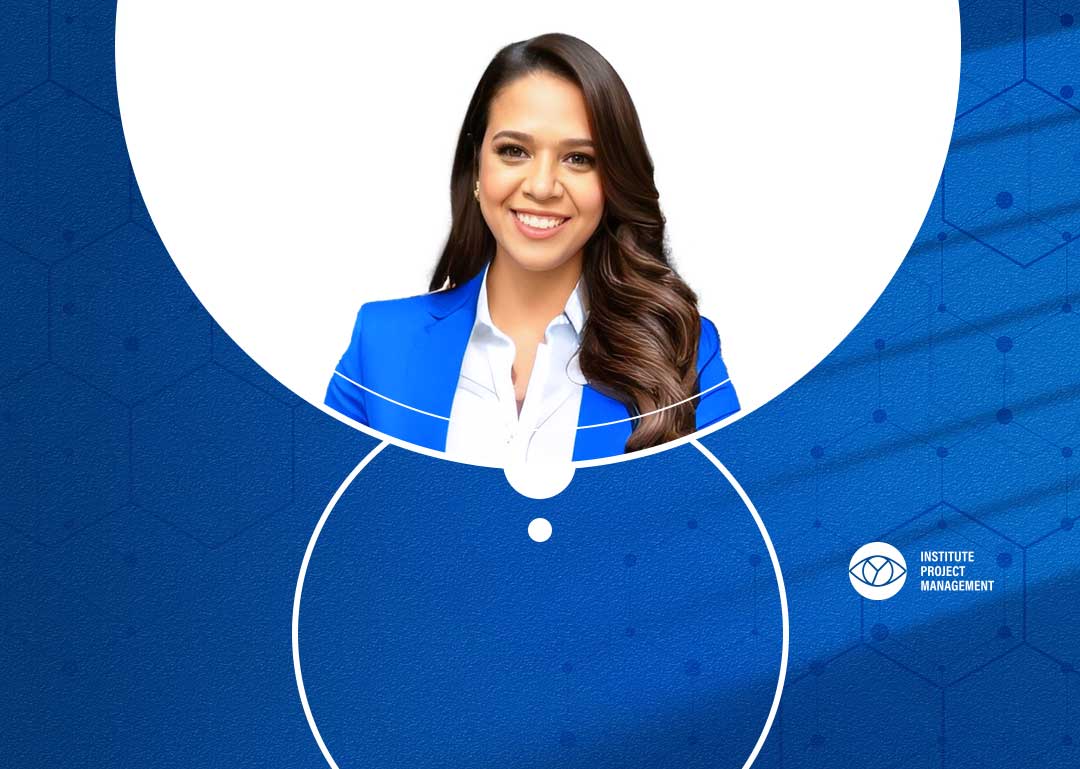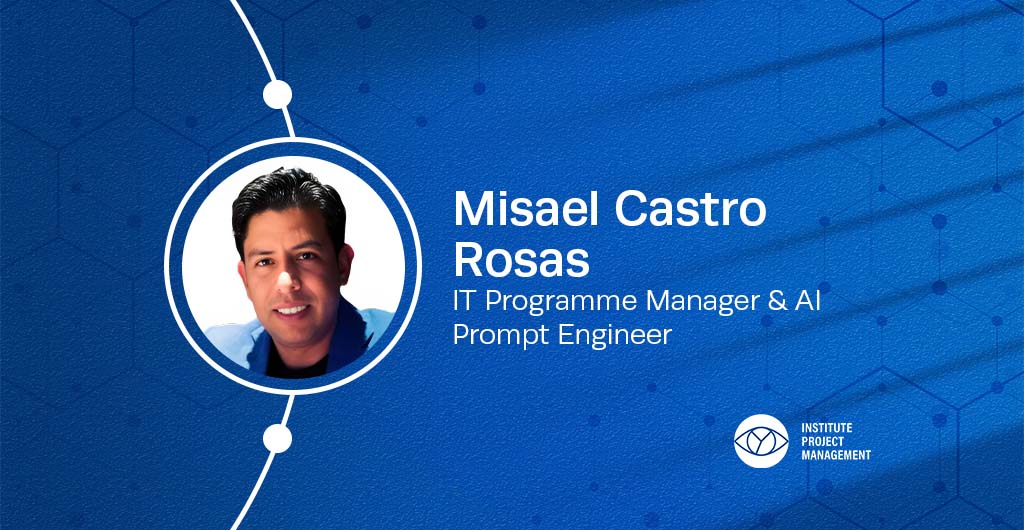Need advice? Call Now, Schedule a Meeting or Contact Us


Speak to an advisor
Micheli Machado discusses the importance of ethics in project management. She also talks about integrity and accountability.

In the fast-paced world of project management, where success is often measured by meeting deadlines and achieving objectives, it is crucial to address ethical considerations and dilemmas. Project managers are responsible for making critical decisions that can impact not only the outcome of a project but also the reputation and integrity of the organisation they represent. This classic essay aims to explore the ethical dimensions of project management, emphasising the importance of integrity and accountability in this field.
The first subtopic delves into the ethical considerations that project managers encounter during decision-making processes. Ethical decision-making involves weighing various factors, such as stakeholder interests, legal requirements, and moral values, to ensure that choices align with ethical standards. This section will examine how project managers navigate these considerations when faced with conflicting priorities or limited resources.
The second subtopic focuses on the dilemmas faced by project managers in their day-to-day roles and proposes ethical solutions to address them effectively. These dilemmas may include conflicts of interest, competing demands from different stakeholders, or pressure to compromise on quality or safety standards. By exploring real-life examples and best practices, this section aims to provide insights into resolving these dilemmas while upholding professional ethics.
Lastly, this essay underscores the significance of integrity and accountability in project management. Integrity refers to adhering steadfastly to moral principles and being honest in all actions undertaken during a project's lifecycle. Accountability entails taking responsibility for one's decisions and actions while being transparent about their implications. The final section will elucidate how fostering a culture of integrity and accountability is essential for building trust among team members, stakeholders, and clients.
In conclusion, this classic essay seeks to shed light on crucial aspects of ethics in project management: ethical decision-making considerations, effective solutions for common dilemmas faced by project managers, and highlighting why integrity and accountability are paramount in ensuring successful projects with long-lasting positive impacts.
In the realm of project management decision-making, ethical considerations play a paramount role in ensuring the successful and sustainable execution of projects. The complexity inherent in this field demands an unwavering commitment to integrity and accountability. One ethical consideration that project managers must confront is the allocation of resources. With limited resources at their disposal, project managers face the perplexing task of distributing these assets equitably among various stakeholders. This requires careful deliberation and transparency to avoid favouritism or bias, ensuring that each stakeholder's interests are adequately addressed. Furthermore, project managers must navigate through ethical dilemmas when faced with conflicting priorities or competing interests. For instance, if a project encounters unforeseen obstacles that jeopardise its timely completion, a decision must be made on whether to compromise quality or extend the deadline. In such situations, maintaining integrity becomes crucial as it ensures that decisions are based on objective criteria rather than personal gain or expediency.
Another ethical consideration in project management decision-making revolves around team dynamics and communication. Project managers must prioritise effective communication channels to foster collaboration as well as to ensure that all team members are well-informed about their roles and responsibilities. By encouraging open dialogue and active participation, project managers can prevent misunderstandings or misinterpretations that may lead to conflicts within the team. Additionally, they should promote inclusivity by respecting diversity and avoiding any form of discrimination or bias when assigning tasks or evaluating performance.
Moreover, project managers bear the responsibility of upholding accountability throughout every stage of a project's lifecycle. It includes being transparent about progress updates, budgetary allocations, and potential risks associated with the project. By fostering a culture of accountability within their teams, project managers can mitigate risks and enhance trust among stakeholders.
Furthermore, ethical considerations extend beyond internal operations to encompass external factors as well. For instance, environmental sustainability is an increasingly important aspect of modern-day projects due to concerns over climate change and resource depletion. Project managers should actively seek sustainable alternatives and minimise the environmental impact of their projects, ensuring that they adhere to ethical standards and contribute to long-term societal well-being.
Ethical considerations are critical in project management decision-making. Integrity and accountability must be upheld throughout the decision-making process to ensure fairness, transparency, and sustainable outcomes. By addressing ethical dilemmas, fostering effective communication, promoting team collaboration, and embracing environmental sustainability, project managers can navigate the complexities of their roles while upholding ethical standards.
Project managers often find themselves in a web of dilemmas that demand ethical solutions. The complex nature of projects, coupled with the diverse stakeholders involved, can create perplexing situations where conflicting values and interests collide. One common dilemma faced by project managers is the pressure to meet tight deadlines and deliver results within budget constraints while maintaining ethical standards. The bursting of demands from clients and stakeholders can disrupt the project management process, forcing managers to make difficult decisions that may compromise integrity. For instance, they may be tempted to cut corners or engage in unethical practices to accelerate progress or reduce costs. However, succumbing to such temptations would undermine the trust of stakeholders and compromise the long-term success of the project.
Another dilemma revolves around resource allocation and team management. Project managers are responsible for making decisions about assigning tasks, setting priorities, and managing conflicts within teams. In this challenging role, they often face conflicting demands from team members who may have different skill sets, work preferences, or personal issues that impact their performance. Striking a balance between fairness and efficiency becomes a delicate task for project managers as they navigate through these complexities.
Moreover, project managers also encounter ethical dilemmas when dealing with external partners or vendors. They must ensure fair procurement processes are followed while selecting suppliers or contractors for various project components. The temptation to favour certain vendors due to personal relationships or kickbacks can erode accountability and expose projects to risks such as poor-quality deliverables or cost overruns.
To address these ethical considerations and dilemmas effectively, integrity must be at the forefront of every decision made by project managers. Upholding a strong moral compass ensures that actions align with ethical principles even when faced with immense pressure or conflicting interests. Accountability is equally crucial - project managers must take ownership of their decisions and accept responsibility for any consequences that arise from them.
To enhance integrity in project management ethics further, organisations should establish clear codes of conduct and provide training on ethical decision-making. Integrity empowers project managers with the knowledge and tools to navigate through complex dilemmas while upholding ethical standards. Additionally, fostering an organisational culture that encourages open communication and reporting of unethical behaviour creates a supportive environment for project managers to seek guidance or raise concerns without fear of retribution.
Project managers face numerous ethical dilemmas throughout the project management process. The burstiness and perplexity of these situations demand ethical solutions rooted in integrity and accountability. By prioritising these values, organisations can foster an ethical climate that enables project managers to make sound decisions, build trust with stakeholders, and ensure the long-term success of projects.
Integrity and accountability are two essential pillars that uphold the ethical framework in project management. These virtues play a significant role in ensuring the success and sustainability of any project. The significance lies not only in their ability to maintain trust and credibility but also in their capacity to address ethical dilemmas that may arise during the course of a project.
Integrity, as an integral component of project management ethics, refers to the adherence to moral principles and values. It encompasses honesty, transparency, and consistency in actions, decisions, and communication. Project managers who exhibit integrity demonstrate a commitment to truthfulness, fairness, and ethical conduct. By upholding these principles, they foster an environment of trust among stakeholders involved in the project.
Accountability complements integrity by holding individuals responsible for their actions or decisions. It entails taking ownership of one's responsibilities, acknowledging mistakes or shortcomings when they occur, and actively seeking solutions or remedies for any negative consequences caused by one's actions. A project manager who embraces accountability ensures that all team members are aware of their roles and responsibilities while maintaining open lines of communication for feedback or concerns.
The significance of integrity becomes apparent when addressing ethical considerations within project management. Ethical dilemmas may arise when conflicting interests between stakeholders emerge or when there is pressure to compromise on quality or safety standards for expedited delivery. In such situations, it is crucial for project managers to remain steadfast in upholding moral values without succumbing to external pressures.
Furthermore, accountability plays a vital role in mitigating the impact of these dilemmas by encouraging individuals to take responsibility for their choices. When faced with difficult decisions that may have ethical implications, accountable project managers are more likely to consider the long-term consequences rather than solely focusing on short-term gains.
Integrity and accountability also contribute significantly to building a positive organisational culture within projects. When team members witness their leaders demonstrating these virtues consistently throughout the project lifecycle - from planning through execution - it fosters an environment of trust, respect, and collaboration. This positive culture enhances team morale, motivation, and overall project performance.
The significance of integrity and accountability in project management cannot be overstated. These virtues serve as guiding principles that ensure ethical conduct, foster trust among stakeholders, address ethical dilemmas that may arise during a project's lifecycle, and promote a positive organisational culture. By upholding these values, project managers lay the foundation for successful and sustainable projects while maintaining their moral compass in an increasingly complex business landscape.
In conclusion, project management ethics play a crucial role in ensuring the success and sustainability of projects. Ethical considerations in project management decision-making are essential to maintain transparency, fairness, and trust among stakeholders. Project managers must carefully evaluate the potential impact of their decisions on various stakeholders and make choices that align with ethical principles.
Dilemmas faced by project managers often arise due to conflicting interests or limited resources. However, ethical solutions can be found through open communication, collaboration, and a commitment to integrity. By prioritising ethical behaviour, project managers can navigate these dilemmas while upholding their professional responsibilities.
Integrity and accountability are fundamental values that should guide every aspect of project management. Integrity ensures project managers act honestly and ethically in all their interactions, while accountability holds them responsible for their actions and decisions. These qualities not only contribute to the success of individual projects but also enhance the reputation of the organisation as a whole.
In conclusion, addressing ethical considerations and dilemmas in project management is crucial for maintaining trust among stakeholders and achieving successful outcomes. By emphasising integrity and accountability throughout the decision-making process, project managers can ensure that projects are conducted ethically and responsibly.
References:
Kerzner, H., & Saladis, F.P. (2017). Project Management: A Systems Approach to Planning, Scheduling, and Controlling (12th ed.). Wiley.
Pinto, J.K., & Slevin D.P. (2019). Critical Success Factors Across The Project Life Cycle. Project Management Journal 50(5), 1-20.
Turner J.R., & Müller R.(2020). The Ethics of Projects: Managing People Purposefully Towards Success (2nd ed.). Routledge.
Cleland D.I., & Ireland L.R.(2018). Project Manager's Portable Handbook (4th ed.). McGraw-Hill Education.
Project Management Institute. (2017). Code of Ethics and Professional Conduct.














